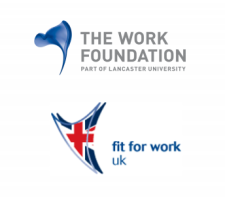October 2, 2014
Increasing numbers of over-65s will require flexible working rights
 We can get so preoccupied with meeting the younger generation’s more flexible approach to work, that we miss the fact that a much greater challenge for employers is in managing the needs of the older workforce. Figures released by the Department of Work and Pensions (DWP) show that nearly a quarter of a million more people aged 65 and over have remained at work since the default retirement age was abolished three years ago. This means that more than a million (103,000) over 65s now choose to stay in work, compared to 874,000 in the quarter October to December 2011 – an increase of 229,000. There are now 9.1 million people aged 50 plus at work, accounting for 29.7 per cent of all those in work aged 16 plus in the UK (30.6 million). This means employers not only need to accommodate an increasingly diverse range of ages but must enable older workers to work more flexibly as they wind down from working life. (more…)
We can get so preoccupied with meeting the younger generation’s more flexible approach to work, that we miss the fact that a much greater challenge for employers is in managing the needs of the older workforce. Figures released by the Department of Work and Pensions (DWP) show that nearly a quarter of a million more people aged 65 and over have remained at work since the default retirement age was abolished three years ago. This means that more than a million (103,000) over 65s now choose to stay in work, compared to 874,000 in the quarter October to December 2011 – an increase of 229,000. There are now 9.1 million people aged 50 plus at work, accounting for 29.7 per cent of all those in work aged 16 plus in the UK (30.6 million). This means employers not only need to accommodate an increasingly diverse range of ages but must enable older workers to work more flexibly as they wind down from working life. (more…)










 We keep saying it but forget all the talk about Gen Y, the UK workforce is actually aging and becoming more diverse. New research from Saga shows that the number of employees over the age of 65 has increased by over a third over the last four years and the numbers of those between 50 and 64 has also increased – by nearly a tenth. The proportion of over 65s within the workforce is up from 3.4 percent to 3.6 percent over the same period but there have also been increases in employment in younger age groups meaning the workforce is more diverse. There are now 1.09 million over 65s still in work and around 8 million in the 50-64 age group.
We keep saying it but forget all the talk about Gen Y, the UK workforce is actually aging and becoming more diverse. New research from Saga shows that the number of employees over the age of 65 has increased by over a third over the last four years and the numbers of those between 50 and 64 has also increased – by nearly a tenth. The proportion of over 65s within the workforce is up from 3.4 percent to 3.6 percent over the same period but there have also been increases in employment in younger age groups meaning the workforce is more diverse. There are now 1.09 million over 65s still in work and around 8 million in the 50-64 age group. 








September 16, 2014
The culture of presenteeism is not all just fun and games
by Mark Eltringham • Comment, Flexible working, Workplace, Workplace design
(more…)